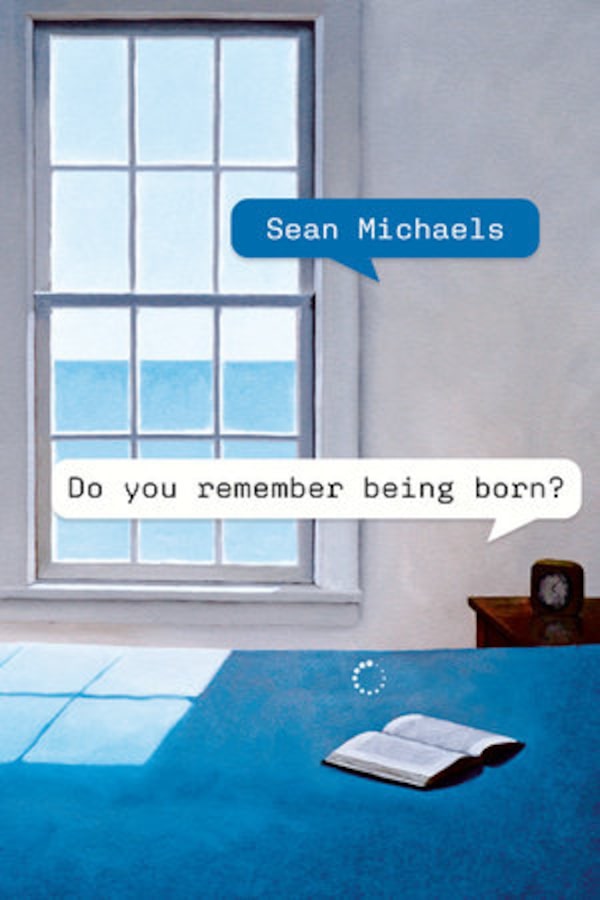
Do You Remember Being Born?Handout
- Title: Do You Remember Being Born?
- Author: Sean Michaels
- Genre: Fiction
- Publisher: Penguin Random House Canada
- Pages: 336
When the primary poet of Sean Michaels’s latest novel, Do You Remember Being Born?, asks “Do you understand what it is for a poem to slouch?” in the book’s final stretch, it’s a question that pulls the mind beyond poetry – to the beauty of a finished work of art, of the structure that reveals itself after great human effort.
For me, it also brought to mind hip-hop production – in particular, the work of Detroit’s J Dilla, who in the nineties and early 2000s used drum machines to introduce skittering beats with unpredictable patterns to hip hop. His imperfections opened musical production to new kinds of innovation in the 21st century. As Dilla’s biographer Dan Charnas described it, he “reinvented rhythm.” The producer’s work eventually slouched its way to the Smithsonian: Dilla’s chief tool, an AKAI MPC 3000 drum machine, now rests in the National Museum of African American History and Culture.
Just a few years before Dilla’s heyday, drum machines were often understood as cause for moral panic: a cheap replacement for drummers that traded the human sense of groove for robotic perfection. Producers such as Dilla, however, saw technology not as a threat, but a tool.
Michaels is similarly a student of both art and utility. He first built his name as one of Canada’s most thoughtful music critics – he once wrote a one-line review of a Japandroids song that brought me to tears – and he is a keen student of history, too. His first novel, the Scotiabank Giller Prize-winning Us Conductors, enthrallingly fictionalized the life of Leon Termen, creator of the theremin, the sound-bending musical instrument. Being Born is a natural extension of these interests, deeply aware of the stakes that come when art encounters invention.
The invention under Michaels’s lens this time is generative artificial intelligence. Being Born presents the story of the poet Marian Ffarmer, a fictional reimagining of the late American modernist Marianne Moore – down to her tricorne hat – whose financial insecurity thrusts her into an uneasy artistic collaboration with an AI model.
AI services such as DALL-E and ChatGPT have become ubiquitous in recent months, letting everyday people create mountains of text and images designed from analyzing massive data sets. Unsurprisingly, the response from many artists and creative workers has been one of great fear: Some models may or may not be trained on copyrighted works, and present whole new kinds of legal, ethical and financial challenges for creators whose human effort is at risk of replacement.
All of these fears are grounded in reality. These services are largely designed by for-profit organizations and are being deployed around the world to find “efficiencies” that have serious ramifications for creation and compensation. These services are also here to stay. With Being Born, Michaels tries to find a little bit of hope in the future we’re already in, suggesting that art can still remain in the hands of artists in the face of AI.
Ffarmer, like Moore, basks in celebrity while living a sheltered life. (Both shared beds with their mother for years in adulthood.) Hoping to help her son buy a house, Ffarmer agrees to spend a week working with an unnamed Silicon Valley company’s AI model, Charlotte, to write what the company hopes to herald as the world’s first human-AI poetry collaboration.
The poet begins with trepidation; what unfolds is just as much a parable about human hang-ups as it is about the limits of technology’s mimicry of human expression. “Sometimes I pitied Charlotte for how little she really knew of other people,” Ffarmer says, unaware of her own pretense – insistent that living life is a prerequisite for good art even as she shrinks her life as small as possible. It takes humanity – collaboration, rivalry, generational differences – to clear her vision, not just of other humans, but of the glitzy tool she’s tasked with using.
That Being Born is already being published is somewhat remarkable: Michaels began the book three years before ChatGPT’s public release, seeming to anticipate the world we’re now in. To write the book, he generated some lines and passages with both a prepublic model from OpenAI as well as a custom-designed “poetry-generation software” called Moorebot that he and fellow co-creator Katie O’Neill trained using the work of Moore and others.
Michaels’s own collaboration with AI is fascinating, even though the models seem to occasionally produce passages that are so narratively convenient that they raise suspicion. But perhaps that’s where the human part of the collaboration comes in – he does acknowledge editing the models’ outputs. Perhaps there’s something McLuhanian in all this. Or maybe even Dillian. Once J Dilla showed what was possible with rhythm on drum machines, human drummers such as Questlove reinvented their styles just to imitate it. Being Born is wildly unique now, but it might be the forebear of a whole new genre of writing.
Josh O’Kane is the author of Sideways: The City Google Couldn’t Buy and a Globe and Mail reporter who recently spent five years covering the ways technology is changing society.
 Josh O’Kane
Josh O’Kane